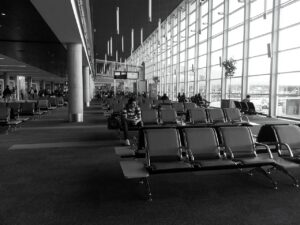Expedia Group has released a comprehensive study indicating a significant shift in travel preferences among the burgeoning Asian middle class, projected to reach 3.5 billion individuals by 2030 and account for two-thirds of the global middle class.
Conducted in collaboration with Atomik Research, the survey gathered insights from 4,000 respondents across key Asian markets including China, India, Indonesia, Singapore, and Vietnam. This research aims to equip travel industry professionals with the necessary context to cater to the increasing number of mass-affluent travelers from Asia.
Key Findings of the Study:
Travel Spending Priorities: The study reveals that mass-affluent Asian consumers are prioritizing travel despite economic pressures such as inflation. On average, these travelers plan to allocate 23% of their income to travel over the next year. An impressive 81% of respondents indicated that travel remains a priority, with 39% willing to prioritize it over purchasing new vehicles or upgrading electronics.
Long-Haul Destinations: While many travelers are inclined towards nearby Eastern and Southeastern Asian countries, there is a notable interest in long-haul destinations such as Japan, the United States, Canada, France, South Korea, Australia, and Germany. On average, respondents plan to visit four destinations over ten days for their next international trip.
Regional Variations: Travel plans differ significantly by region. Indian travelers typically plan longer trips averaging 14 days and often include five or more destinations. In contrast, Vietnamese travelers plan shorter trips averaging 8 days, usually visiting four or fewer destinations.
Digital Booking Trends: The reliance on technology for travel planning is evident, with 72% of respondents using platforms like Expedia for bookings. A majority utilize travel apps for hotel reservations (73%), flight bookings (70%), and finding activities (52%). Notably, 83% of Asia-Pacific respondents have a travel brand’s app installed on their devices.
Demand for Premium Experiences: The study highlights a strong preference for premium amenities among mass-affluent travelers. A staggering 93% plan to seek at least one luxury experience on their next trip. Preferences vary by nationality; for instance, Chinese and Singaporean travelers favor gourmet dining, while Indian travelers prefer business or first-class flights.
Concerns and Preferences: Nearly half of the respondents expressed concerns about local customs and practices while traveling. Additionally, there is a willingness to spend more for accommodations with staff who speak their language. Despite seeking deals due to inflation (75%), luxury remains a priority, with high demand for luxurious room amenities (53%) and experiential excursions (52%).
Loyalty Programs: Loyalty programs are highly valued among these travelers, with 86% belonging to at least one program. This presents an opportunity for tourism boards to engage these consumers early in their planning process.
Peter O’Connor from the University of South Australia emphasized the importance of this demographic in shaping the future of the travel economy. As mass-affluent consumers increasingly favor long-haul trips and luxury experiences, understanding their unique preferences will be crucial for industry partners aiming to attract this influential market segment.
Expedia’s findings underscore the need for tailored offerings that resonate with affluent Asian travelers as they navigate their post-pandemic travel ambitions amidst economic challenges.

















More Stories
US Imposes 25% Tariffs on Japan, South Korea, and Others Tourism Sector Faces Uncertainty
Europe Erupts Against Overtourism – Local Resistance
Ryanair Cancels 170 Flights Amid French Air Traffic Controllers’ Strike, Stranding Over 30,000 Passengers